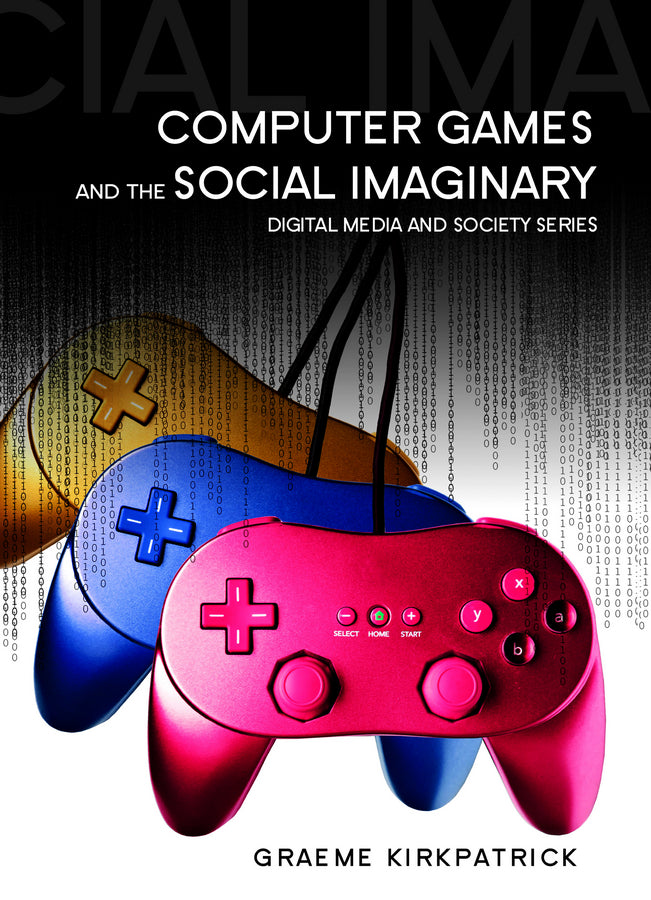Description
Discover the transformative power of gaming with 'Computer Games and the Social Imaginary' by Graeme Kirkpatrick. This insightful text explores the profound changes that computer games have brought to society in the digital age. With a focus on the origins of gaming dating back to the vibrant 1960s counterculture, Kirkpatrick illustrates how computer technology evolved from a mechanical concept into a lively and colorful arena for play. This book delves deep into the evolution of gaming culture, revealing how it became an essential resource for individuals navigating the complexities of the modern global economy. Understand the dual nature of gamer identity, which supports a streamlined workforce yet simultaneously questions corporate control over game production. Perfect for students and scholars in the fields of digital media and games studies, this book is a must-read for anyone interested in the social implications of gaming. Written in a compelling narrative style, 'Computer Games and the Social Imaginary' offers a critical examination of technology's entwinement with power, the formation of gaming communities, and the subjective experiences shaped by interactive play. With 248 pages of rich content, this brand new item is published by John Wiley & Sons (UK) in 2013. Note: Shipping for this item is free. Please allow up to 6 weeks for delivery. Once your order is placed, it cannot be cancelled.
Note: Shipping for this item is free. Please allow up to 6 weeks for delivery. Once your order is placed, it cannot be cancelled.
Condition: BRAND NEW
ISBN: 9780745641119
Year: 2013
Publisher: John Wiley & Sons (UK)
Pages: 248
Description:
In this compelling book, Graeme Kirkpatrick argues that computer
games have fundamentally altered the relation of self and society
in the digital age.
Tracing the origins of gaming to the revival of play in the
1960s counter culture, Computer Games and the Social
Imaginary describes how the energies of that movement
transformed computer technology from something ugly and
machine-like into a world of colour and ?fun?. In the
process, play with computers became computer gaming ? a new
cultural practice with its own values.
From the late 1980s gaming became a resource for people to draw
upon as they faced the challenges of life in a new, globalizing
digital economy. Gamer identity furnishes a revivified capitalism
with compliant and ?streamlined? workers, but at times
gaming culture also challenges the corporations that control game
production.
Analysing topics such as the links between technology and power,
the formation of gaming culture and the subjective impact of play
with computer games, this insightful text will be of great interest
to students and scholars of digital media, games studies and the
information society.
Note: Shipping for this item is free. Please allow up to 6 weeks for delivery. Once your order is placed, it cannot be cancelled.
Condition: BRAND NEW
ISBN: 9780745641119
Year: 2013
Publisher: John Wiley & Sons (UK)
Pages: 248
Description:
In this compelling book, Graeme Kirkpatrick argues that computer
games have fundamentally altered the relation of self and society
in the digital age.
Tracing the origins of gaming to the revival of play in the
1960s counter culture, Computer Games and the Social
Imaginary describes how the energies of that movement
transformed computer technology from something ugly and
machine-like into a world of colour and ?fun?. In the
process, play with computers became computer gaming ? a new
cultural practice with its own values.
From the late 1980s gaming became a resource for people to draw
upon as they faced the challenges of life in a new, globalizing
digital economy. Gamer identity furnishes a revivified capitalism
with compliant and ?streamlined? workers, but at times
gaming culture also challenges the corporations that control game
production.
Analysing topics such as the links between technology and power,
the formation of gaming culture and the subjective impact of play
with computer games, this insightful text will be of great interest
to students and scholars of digital media, games studies and the
information society.

